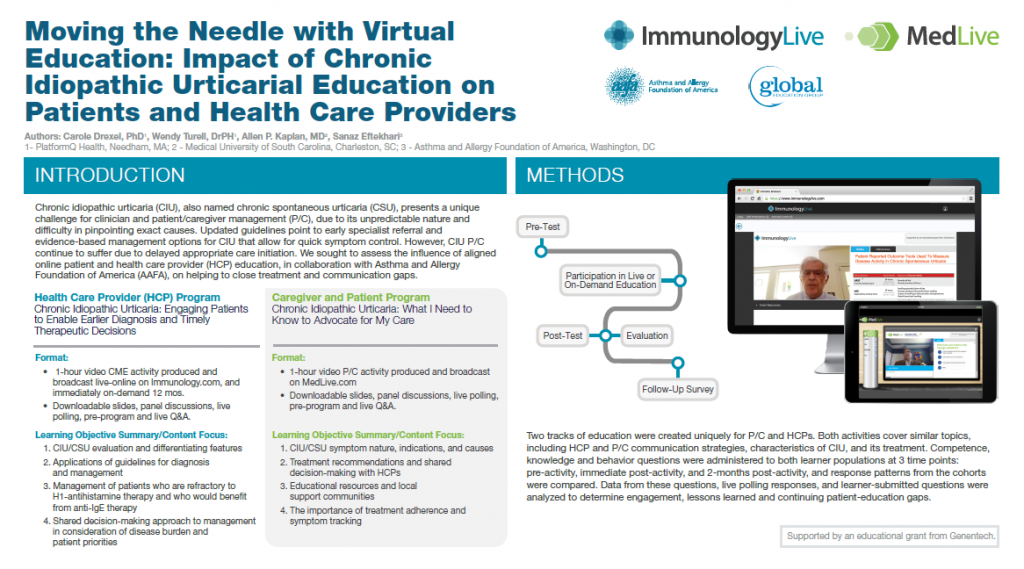The American Academy of Dermatology’s Virtual Meeting Experience returns April 23rd-25th and PlatformQ Health is excited to be presenting the e-poster presentation, “Moving the Needle with Virtual Education: Impact of Chronic Idiopathic Urticarial Education on Patients and Health Care Providers.”
The accepted poster analyzes the outcomes from an educational initiative that sought to assess the influence of aligned online patient and health care provider (HCP) education, in collaboration with Asthma and Allergy Foundation of America (AAFA), on helping to close treatment and communication gaps. As a result of this initiative, it was concluded that quantitative testing and surveying supported the positive impact of CME and caregiver education focused on CIU, its’ evaluation, guidelines, treatment options, and shared decision-making strategies.
Check out the virtual presentation of the poster given by poster author, Carole Drexel, PhD, Medical Director & Vice President of Patient Education.
HCP Data Highlights
- 866 learners attended the HCP program, 80% of which were MDs, NPs, and PAs
- 50% & 62% increase over pre-test in competence concerning second-line treatment options for CIU
- 91% of HCPs reported a positive impact on patient outcomes
- 92% of HCPs reported a positive impact on clinical practice
“Patient outcomes improved as I was now well aware o f identifying the disease burden and was able to involve patient in shared decision-making to escalate therapy according to guidelines. Patients too derived satisfaction.”
Patient/Caregiver Data Highlights
- 11.7k patients and caregivers attended the patient program
- 41% & 10% increase over pre-test in knowledge regarding second-line treatments for CIU
- 80% of patients/caregivers reported a positive impact on communication
- 58% of patients/caregivers reported a positive impact on decision-making
“I have accepted that I have CSU which helps me understand and advocate for myself better as opposed to continuing to try to convince providers and myself that I still have the mastocytosis from my childhood.”



